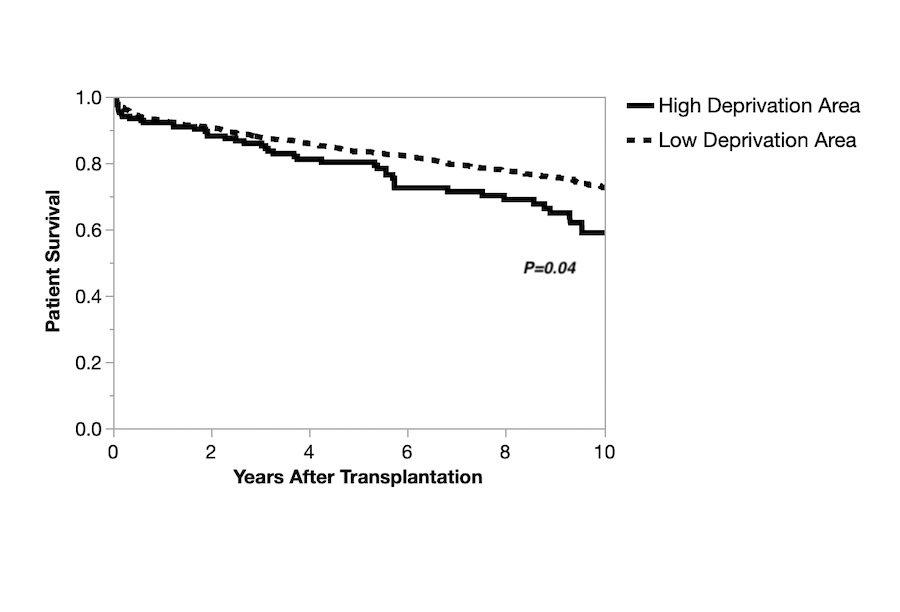Area Deprivation Index is Associated with Worse Patient Survival Following Adult Liver Transplantation
1Division of Transplant Surgery, Department of Surgery, University of Washington, Seattle, WA, 2Clinical and Bio-Analytics Transplant Laboratory (CBATL), University of Washington, Division of Transplant Surgery, Department of Surgery, Seattle, WA, 3School of Medicine, University of Washington, Seattle, WA
Meeting: 2022 American Transplant Congress
Abstract number: 74
Keywords: Economics, Liver transplantation, Survival
Topic: Clinical Science » Organ Inclusive » 70 - Non-Organ Specific: Disparities to Outcome and Access to Healthcare
Session Information
Session Name: Disparities to Outcome and Access to Healthcare
Session Type: Rapid Fire Oral Abstract
Date: Sunday, June 5, 2022
Session Time: 3:30pm-5:00pm
 Presentation Time: 4:30pm-4:40pm
Presentation Time: 4:30pm-4:40pm
Location: Hynes Room 311
*Purpose: Area Deprivation Index (ADI) has been utilized as a granular measure of local socioeconomic status for nearly two decades. This study is the first to investigate the relationship between ADI and patient survival after adult liver transplantation.
*Methods: We performed a retrospective study using the cohort of adult liver transplant recipients at the University of Washington Medical Center from Janurary 1, 2004 through December 31, 2020 (n = 1602). Primary exposure was ADI in a range of 1 -100 as determined by the patient’s home address. Primary outcome measures were patient survival and hospital length of stay.
*Results: In a multivariable Cox proportional analysis, patients from high deprivation areas (scores 61 – 100) had a 1.44 hazard ratio (95% CI: 1.06 to 1.96, p = 0.02) for post-transplant death compared to those from lower deprivation neighborhoods (scores 1 – 60). Recipient race was not a significant factor in post-transplant survival. Also, ADI was associated with longer post-transplant length of stay. For each 1-point increase in ADI, the post-transplant hospital length of stay increased by 0.05 days (0.004 to 0.10 day, p = 0.04).
*Conclusions: Adult patients from high deprivation areas have worse survival following liver transplantation and longer hospital stays. Ongoing work is needed to understand the challenges facing transplant recipients from areas of socioeconomic deprivation.
To cite this abstract in AMA style:
Hendele J, Perkins J, Nichols J, Dick A. Area Deprivation Index is Associated with Worse Patient Survival Following Adult Liver Transplantation [abstract]. Am J Transplant. 2022; 22 (suppl 3). https://atcmeetingabstracts.com/abstract/area-deprivation-index-is-associated-with-worse-patient-survival-following-adult-liver-transplantation/. Accessed January 9, 2026.« Back to 2022 American Transplant Congress

